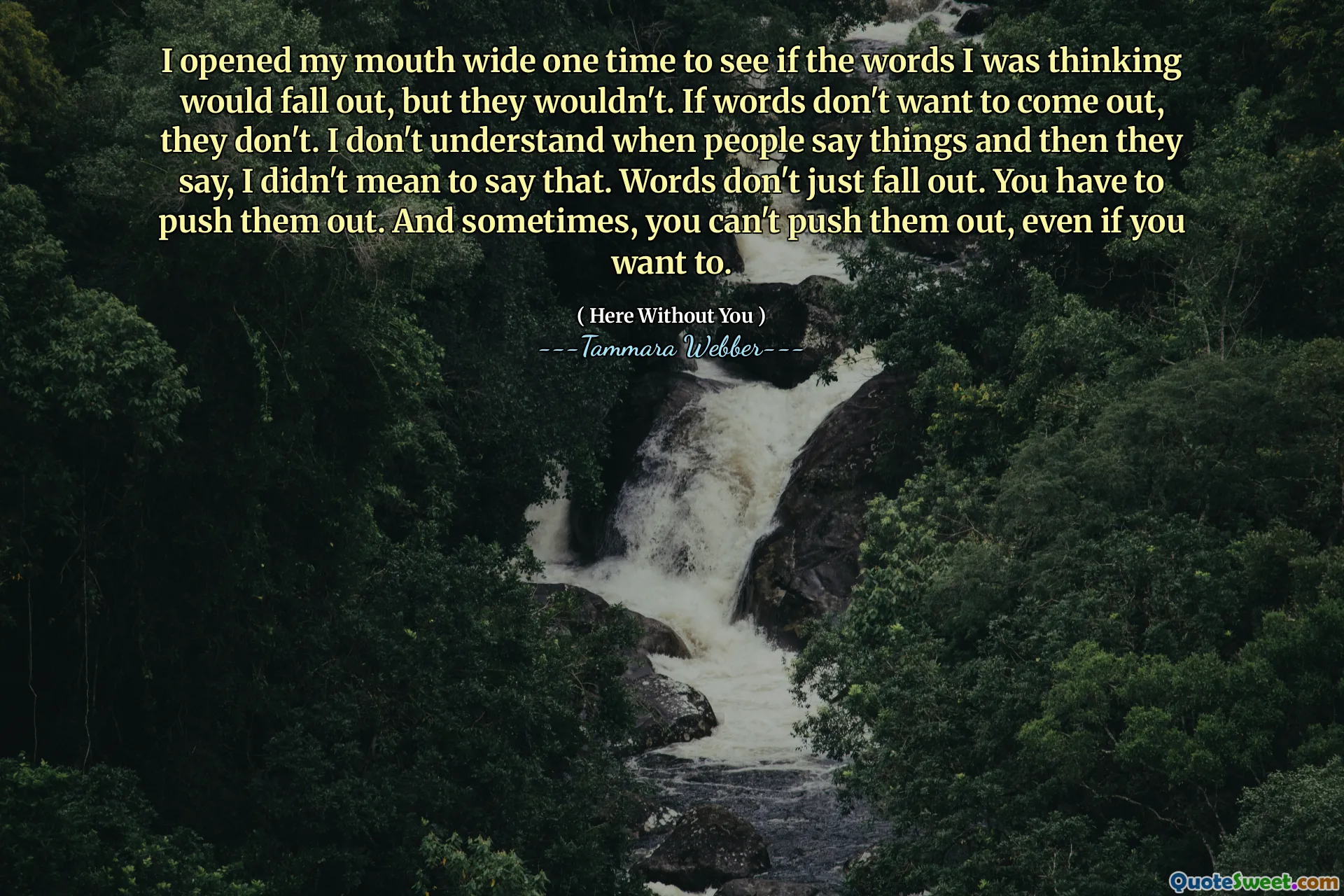
I opened my mouth wide one time to see if the words I was thinking would fall out, but they wouldn't. If words don't want to come out, they don't. I don't understand when people say things and then they say, I didn't mean to say that. Words don't just fall out. You have to push them out. And sometimes, you can't push them out, even if you want to.
This quote offers a profound reflection on the nature of communication and the complex relationship between thought and speech. It highlights the often misunderstood assumption that talking is as simple as opening one’s mouth and letting words flow freely. However, the reality is more nuanced; words are a product of intention, effort, and emotional readiness. When the speaker notes that words won't fall out simply by opening the mouth, it challenges the reader to consider how difficult it can be to express oneself truthfully or comfortably in certain situations. The analogy of pushing words out suggests that expressing oneself sometimes requires effort, bravery, or timing. The statement about not understanding when others say things they didn't mean underscores a common human frustration—how words can sometimes escape us or be misunderstood, regardless of our intentions. Furthermore, the acknowledgment that sometimes words can't be pushed out, even when desired, points to internal barriers like fear, shame, or complex feelings that inhibit genuine expression. This can remind us of the importance of listening, patience, and understanding in conversations. Such reflection emphasizes that communication is not always straightforward and that silence or restraint can be as meaningful as speech. Recognizing these internal struggles may foster greater empathy in our interactions and remind us that words are powerful, sometimes deliberate, and sometimes elusive. The quote encourages us to consider new perspectives on honesty, intention, and vulnerability in conversations, revealing how deeply interconnected our thoughts, emotions, and expressions truly are.






